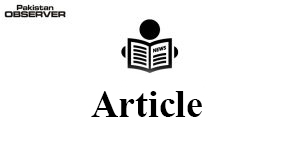Iqbal Khan
IN a major volte-face, out rightly benefiting India, the European Union Parliament has put off, till March, the voting on the anti-CAA (Citizenship Amendment Act) resolution that was earlier scheduled to take place on January 30. India and the EU are preparing to hold their annual summit in Brussels on 13 March; two sides aim to seal a bilateral trade and investment treaty; EU is India’s largest trading partner. Delay in voting, in all likelihood, is underwritten by EU’s corporate greed.
In addition to deferment of voting, the EU has systematically distanced itself from the six motions, tabled by six political groups of the EU Parliament. Virginie Battu-Henriksson, the EU’s Spokesperson for Foreign Affairs and Security Policy told India Today TV: “It is important to recall that these texts are only drafts tabled by various political groups in the European Parliament, “the opinions expressed by the EU Parliament and its members do not represent the official position of the European Union”. Six resolutions on India’s CAA were submitted to Parliament for discussion, later the 66-member European Conservatives and Reformists (ECR) Group pulled out, bringing the total number of Members of European Parliament backing the resolution from 626 to 560. The five motions were merged into a single resolution. The joint resolution was a much watered down document. For example, some of the individual resolutions had mentioned the ongoing Kashmir crisis quite elaborately, whereas, the final joint version makes no mention of Kashmir.
Joint motion, tabled in the EU Parliament read: “The European Parliament…deeply regrets the adoption and implementation of the CAA, which is discriminatory in nature and dangerously divisive; calls on the Government of India to immediately respond to citizens’ petitions as required by the Supreme Court;…and to repeal the discriminatory amendments, which violate India’s international obligations;…[EU] warns against the increasing nationalism which has resulted, inter alia, in the fuelling of religious intolerance and discrimination against Muslims…” The joint resolution has just appealed to India to reconsider the CAA, it has also linked it to the National Register of Citizens (NRC). It says the Indian government’s statements indicate that the NRC process “aims to strip Muslims of their citizenship rights while protecting those of Hindus and other non-Muslims”. “The European Parliament… is worried that the NRC marks a dangerous shift in the way citizenship will be determined in India, and may create a large-scale statelessness crisis and cause immense human suffering…condemns the violence and brutality that broke out in different regions of India following the adoption of the CAA; … [EU] calls on the Indian authorities to immediately and unconditionally release the protesters and human rights defenders currently held under arrest…”
The delegation of the European Commission in India on January 27 also seemed to distance itself from resolutions: “The European Parliament is an independent institution, sovereign in the organization of its work and in its deliberations. The texts referred to are draft resolutions by political groups in the European Parliament”. India had called for engagement between New Delhi and the EU “to get a full and accurate assessment of the facts before they proceed further” with discussing and voting on the resolutions. Strong support for the Indian government came from France. A French diplomatic source told India Today on January 27 that “the Citizenship Amendment Act is India’s internal political matter”. However, Luxembourg’s Minister for Foreign and European Affairs, Jean Assleborn expressed concern regarding the issue of rendering an entire population stateless.
The motion drafted by the European United Left/Nordic Green Left (GUE/NGL)had urged the EU and other member states to promote the implementation of the UN Security Council resolutions on Kashmir dispute and regretted that “India has never implemented UN Security Council resolutions requiring a referendum allowing all Kashmiris to determine the future status of Kashmir”. There was also a mention of the incident of mob attack at Jawaharlal Nehru University (JNU) Campus in New Delhi which was attacked by a masked mob that injured over 20 students and teachers from the varsity. An overwhelming number of 154 parliamentarians had signed this resolution. Another resolution by the Renew Group had expressed concerns over the controversial Indian Citizenship Act, saying: “[The] CAA [Citizenship Amendment Act] amendments are set to create the largest statelessness crisis in the world and cause immense human suffering.” The EU lawmakers had heaped scorn on the Modi government for enacting “fundamentally discriminatory” law in a five-page resolution. Resolution condemned the violence and “systematic brutality” of the Indian law enforcement agencies against the protesters.
The resolution by lawmakers from the Renew Group, also called on the European Union and its member states “to promote the implementation of the UN Security Council resolutions on Kashmir”. The draft resolution says the CAA “violates India’s international obligations to prevent the deprivation of citizenship on the basis of race, colour, descent or national or ethnic origin as enshrined in the ICCPR (International Covenant on Civil and Political Rules) and other human rights treaties.” This development came after several diplomats from EU countries refused to take part in “guided tour” to IOK, in December, where they were not allowed to meet detained Kashmiri politicians. “EU envoys don’t want a guided tour of Kashmir. We want to meet people freely of our own choosing,” the NDTV news channel quoted one European diplomatic source as saying. In particular, they wanted to meet three former chief ministers who are still locked up. Delay in voting and EU’s distancing from the sentiments of a large number of MEPs has come as a disappointment. Hopefully, the EU would make a requisite correction to stay its traditional path.
—The writer is a freelance columnist based in Islamabad.










